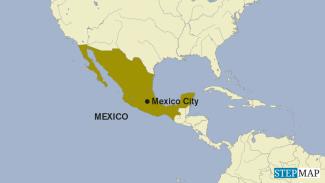Technology
New strategies for female entrepreneurs

At the onset of the Covid-19 pandemic, businesses in many parts of the country faced challenges in their operations. Female-led enterprises suffered most because many women lack access to digital networks and technologies that would allow them to operate when human contact was restricted. Several gender-focused institutions have since emphasised digital inclusion of women entrepreneurs.
Corporativa de Fundaciones, a community foundation in western Mexico, has designed an online programme called “Mati virtual” to offer business training for women entrepreneurs in Jalisco and other states. The programme aims to broaden the business vision of entrepreneurs, grow profits and expand the market beyond the physical context. The participants learn the strategies of how to reach a customer online.
Mati helped a lot of female entrepreneurs like Quetzali from Oaxaca in the south of Mexico: “All my sales are through the internet. I have sold in several places and done all my social-media content on my own.” Before Mati she had no idea how to sell. She learned the strategies of online distribution, she says.
In addition to training, Mati encourages entrepreneurs to collaborate and share ideas. Xochitl, who owns a food business, says that on Mati she started to surround herself “with like-minded people who want to get ahead in life.”
“We are in a WhatsApp group called Tribu Mati (Mati Tribe) and on Wednesdays we share good news and get to know more women from all over the country who are also entrepreneurs,” Quetzali says. The entrepreneurs meet digitally via Zoom sessions. “On this platform, I discovered that there are many women like me who are entrepreneurs and have families.”
The coordinator of Mati, Marisa Orozco, acknowledges that learning to use and manage communication and information technologies provides women with a range of options to consolidate and grow their businesses. Since 2020, Mati virtual has graduated 112 women in four intakes from 12 states. This is in addition to 75 other women who have graduated from the on-site programme since 2015.
Close to 160 graduates from the Mati programme across the country are on Tribu Mati. Marisa Orozco says that participants “are super supportive of each other.”
Mayra, who owns a bakery in Zapopan in western Mexico, says that digital marketing helped her during the peak of the pandemic to keep her business afloat. She uses social media to keep track of market trends and customer needs. “What I use a lot is Facebook and WhatsApp, but Google has worked very well for me too,” she says
However, women must have access to a cell phone, the internet, electronic media and have basic computer skills to use digital networks. Women from disadvantaged backgrounds are thereby excluded. As such, programmes like Mati are usually limited to women who live in or near metropolitan areas in the biggest cities of the country.
Pamela Cruz is the Special Projects Coordinator at Comunalia, a network of community foundations in Mexico and Strategic Advisor at MY World Mexico.
pamela.cruzm@gmail.com













